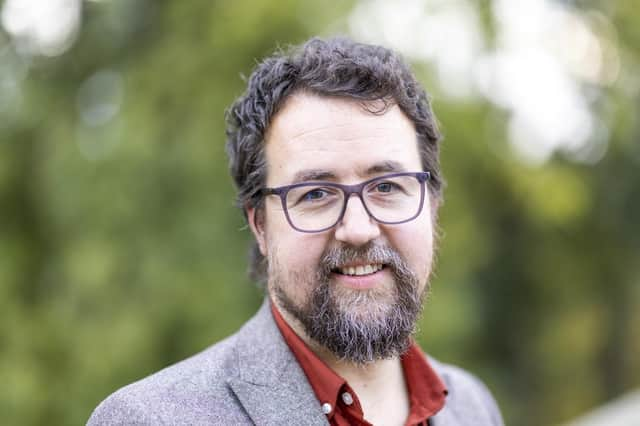COP28: Two years after Glasgow hosted COP26, Scotland needs to step up


Every year, representatives from around the world meet at the Conference of the Parties (COP) to address the climate crisis.
This year, COP28 is hosted by the United Arab Emirates. For the first time, the conference includes a “Global Stock Take” (GST) to determine if the world is on course to meet its climate targets. The GST will highlight any disparities between a country’s climate ambition and its current level of action.
When Glasgow hosted COP26 in 2021, the Scottish Government could be proud of its 2045 net zero target. Since then, whilst ambitions have remained high, progress has not kept pace. As a result, Scotland missed its emissions targets for 2021.


Changeworks believes that a just transition to net zero can be achieved through decarbonising homes and the electrification of heat. Scotland has some of the most inefficient homes in Europe, with 13% of Scotland’s greenhouse gas emissions coming from energy use in the home. We need to accelerate making homes more energy efficient to help tackle the dual threat of the climate emergency and volatile energy markets which have caused thousands of householders to be in fuel poverty.
One item on Scotland’s stock take list that highlights a lack of action is the air source heat pump, a low carbon technology that the government rightly sees as the most viable alternative to fossil-fuel based central heating. To meet the 2045 net zero target, installations must double every year. By the late 2020s, Scotland will need to install 200,000 heat pumps per year.
However, rather than installations doubling, between 2015 and 2021 the rate has remained constant, at 3,000 – 4,000 heat pumps per year. According to the Microgeneration Certification Scheme (MCS), 17,920 heat pumps were installed across the UK in the first half of 2023. This means the likely number of installations across the UK for the whole of 2023 will be 36,000. Scotland needs to reach 64,000 heat pump installations a year in 2025. In other words, in just over a year’s time, Scotland needs to install one and a half times more heat pumps than are currently being installed per year across the entire UK.
Given such a tall order, there can be no further delay. Yet the Scottish Government recently announced that it is pushing back its climate change plan.
Changeworks has over 35 years’ experience in decarbonisation; in 2022/23 alone, working with Scottish councils and social landlords, we installed over 7,700 home energy efficiency measures. We are now entering the consumer market with a new service, EcoCosi, to enable householders to retrofit their homes. Scotland has the technologies in place to decarbonise at scale. However, by stalling on policy, the government creates uncertainty which discourages investment, which in turn hinders action. While we wait for the government to schedule the Heat in Buildings Bill and put in place more incentives and regulation for the built environment sector, organisations across the public and private sectors need to embrace innovative, collaborative partnership working to drive the action urgently needed.
We continue to call on the government to progress on its climate commitments. In the meantime, we’re doing everything we can to meet net zero. We all need to play our part to tackle the climate emergency and to enable Scotland to start fulfilling its moral obligations for a just transition by COP29.